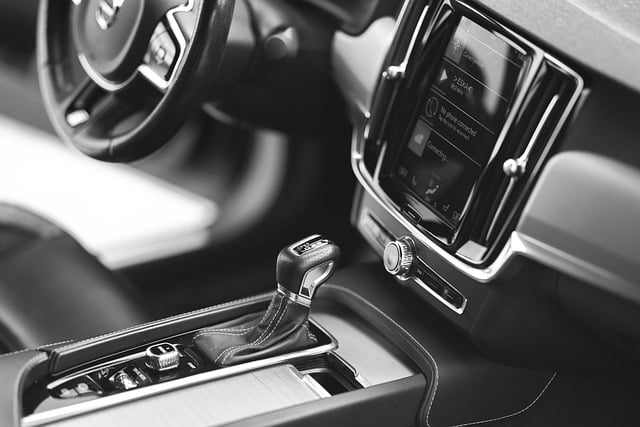Maintaining a car battery requires understanding its typical lifespan of three to five years, which can vary with climate and usage. Regularly check your battery's charge level using the vehicle's charging indicator, clean terminals to prevent corrosion, and ensure the alternator is functioning correctly for proper charging. Servicing the charging system regularly can prevent discharged batteries. Portable car battery chargers are essential tools for longevity and performance; they provide a high amperage at low voltage to counteract sulfation and can be used as a preventative measure during long trips or in regions with scarce charging stations. Selecting the right ampere rating, automatic voltage detection features, and ensuring compatibility with your car's battery type are crucial for effective charging. Regular maintenance, including terminal cleaning and awareness of environmental impacts, is vital to preserve battery health. A portable charger with high capacity and reserve power offers additional security, especially on long journeys or in situations where frequent use may drain the battery. This approach not only ensures your car's electrical system functions optimally but also extends the lifespan of your car battery, making it a wise investment for car owners concerned with safety and longevity.
When it comes to maintaining your vehicle’s health, understanding car battery care is paramount. This article delves into the critical role of portable chargers in preserving your car’s battery life. We’ll explore top-rated models suitable for automotive use, their key features, and how to optimize their performance. From selecting the ideal portable charger for your vehicle to best practices for safe and efficient charging, this guide covers it all. Learn about the impact of temperature on battery longevity, essential tips for maintaining optimal car battery health, and the latest innovations in portable charging technology. Whether you’re an enthusiast or a commuter, ensuring your car battery is in top shape is not just convenient—it’s essential.
- Understanding Car Battery Maintenance
- The Role of Portable Chargers in Car Battery Care
- Top Portable Chargers for Automotive Use
- Key Features to Look for in a Car Battery Portable Charger
- How to Properly Use a Portable Charger with Your Car Battery
- Maintaining Optimal Performance: Tips for Car Battery Health
- The Importance of Battery Capacity and Reserve in Portable Chargers
Understanding Car Battery Maintenance

Maintaining your car battery in optimal condition is a critical aspect of vehicle care, ensuring that you’re never stranded with a dead battery. Regular maintenance can extend the life of your car battery and prevent unexpected failures. To start, it’s important to understand that car batteries have a finite lifespan, typically ranging from three to five years, depending on the climate, usage patterns, and battery type. Factors such as extreme temperatures, frequent short trips, and an increasingly demanding electrical system can accelerate wear. Regularly checking your battery’s charge level is essential; most cars are equipped with a charging indicator that informs you of the battery’s status when the engine is off. Additionally, inspecting the battery terminals and cables for corrosion or loose connections can prevent issues related to poor electrical flow. Cleaning corroded terminals with a baking soda paste can restore conductivity.
Another key aspect of car battery maintenance is ensuring that your vehicle’s charging system is functioning correctly. The alternator charges the battery while the car is running, and it’s important that this system operates efficiently to keep the battery fully charged. Regular servicing, including checking the charge rate, testing the voltage output, and inspecting the drive belt for any slipping or wear, can help catch problems before they lead to a discharged battery. Moreover, avoiding excessive electrical loads, such as running accessories or lights unnecessarily, can prevent unnecessary strain on your car’s battery. By staying informed about these maintenance practices and addressing issues promptly, you can effectively care for your car battery and ensure reliable starts and consistent performance.
The Role of Portable Chargers in Car Battery Care

When it comes to maintaining a healthy car battery, portable chargers play a pivotal role in ensuring longevity and optimal performance. These devices are designed to rejuvenate a flat or weak car battery by delivering a high volume of amperage at a lower voltage. Regularly using a portable charger can prevent sulfation, a condition where the lead sulfate crystals in the battery’s cells become too embedded to fully recharge. This proactive approach not only extends the life of your car battery but also provides peace of mind, especially in unpredictable weather conditions or when embarking on long journeys. Portable chargers are compact and user-friendly, making them an ideal solution for drivers who prioritize their vehicle’s electrical systems. By incorporating a portable charger into your vehicle’s maintenance routine, you can effectively counteract the draining effects of parasitic loads and ensure that your car battery is always ready to start your engine reliably. Remember to follow the manufacturer’s instructions for safe and efficient usage, and to regularly check your car battery’s charge level to avoid being stranded due to a dead battery.
Top Portable Chargers for Automotive Use

When it comes to maintaining your car battery’s health, having a reliable portable charger is crucial for automotive use. The top portable chargers for cars are designed to provide a power source on the go, which can be invaluable in preventing dead batteries due to prolonged disuse or unexpected drains. These devices are compact and easy to store, allowing drivers to charge their vehicle’s battery without needing to connect to an alternator or car charging system. A high-quality portable charger for cars should deliver a consistent current that matches the specifications of your car battery, ensuring a safe and effective recharge. Additionally, these chargers often come with smart features such as automatic voltage detection and overcharging protection, which are essential for maintaining your car’s battery longevity. When selecting a portable car charger, consider factors like amp rating, battery type compatibility, and durability to ensure it meets your specific needs. For instance, models that offer both 12-volt and USB outputs can charge not only your car battery but also power your devices during travel, making them versatile tools for any driver. Incorporating a top-tier portable charger into your vehicle’s emergency kit is a proactive step towards safeguarding your car battery from unexpected discharges and ensuring your vehicle starts reliably whenever you need it to.
Key Features to Look for in a Car Battery Portable Charger

When selecting a portable charger for your car battery, several key features should be taken into account to ensure optimal performance and longevity of your vehicle’s electrical system. Firstly, consider the ampere (A) rating of the charger; it should match or slightly exceed the car battery’s capacity to effectively recharge. Additionally, a built-in automatic charging relay (ACR) is beneficial as it facilitates safe and controlled energy transfer between the charger and the battery. For added convenience and safety, look for a unit with overcharging and short-circuit protection features, which prevent damage from misuse or environmental factors such as extreme temperatures.
Another crucial aspect to evaluate is the charging mode, with most modern chargers offering both bulk and float modes. This dual functionality allows for a faster initial charge followed by a maintenance phase, ensuring your car battery remains at peak health. Furthermore, consider the portability of the device; a compact and lightweight design won’t take up much space in your vehicle while still delivering robust charging capabilities. Lastly, ensure that the portable charger is compatible with your car’s make and model to avoid any issues during installation or use. By carefully selecting a portable charger based on these features, you can safeguard your car battery’s performance and extend its lifespan.
How to Properly Use a Portable Charger with Your Car Battery

When utilizing a portable charger for your car battery, it’s crucial to follow proper procedures to maximize its effectiveness and longevity. Firstly, ensure that your car battery is sufficiently charged; otherwise, the portable charger won’t function as intended. Connect the portable charger according to the manufacturer’s instructions, typically by clipping it onto the car battery terminals or using appropriate cables. Once connected, activate the charger and allow it to run its complete cycle without interruption. This will ensure that your car battery is fully recharged and ready for use.
It’s also important to monitor the charging process. Keep an eye on the portable charger’s indicator lights or readouts, which provide information on the charging status. If your car battery is significantly depleted, it may take several hours for a full charge, so plan accordingly. After the charging process is complete, disconnect the portable charger carefully to avoid any electrical spikes or surges that could damage both the charger and your car battery. Regularly maintaining your car battery with a portable charger can prevent sulfation and prolong its life. Always store the charger properly when not in use, and consider using it periodically to maintain a full charge, especially if your vehicle is parked for extended periods or during seasons when you don’t drive as much. Proper usage of a portable charger is key to ensuring your car battery remains reliable and ready for any journey.
Maintaining Optimal Performance: Tips for Car Battery Health

To maintain optimal performance and longevity of your car battery, it’s crucial to implement a routine of care and maintenance. Regularly check the battery’s charge level using a reliable portable charger designed for automotive use. These devices can recharge your car’s battery when it’s not in use, preventing sulfation, which occurs when the battery discharges and the sulfuric acid in the electrolyte solidifies on the lead plates. Additionally, ensure that the charger you select is compatible with your vehicle’s battery type and has automatic voltage detection to avoid overcharging or undercharging. Keeping the battery terminals clean and corrosion-free is another vital aspect of maintenance; dirty terminals can significantly reduce battery efficiency. Lastly, consider the charging environment temperature; extreme temperatures can impact battery performance, so it’s wise to store your portable charger in a place that protects it from harsh weather conditions. By following these tips, you can safeguard your car battery’s health and ensure it operates at peak condition.
The Importance of Battery Capacity and Reserve in Portable Chargers

When considering a portable charger for your car’s battery, the capacity and reserve power of the device are paramount. A high-capacity portable charger ensures that your vehicle’s battery remains charged over an extended period, which is crucial for areas with long intervals between charging opportunities. The reserve capacity, or the amount of charge remaining after the battery has been discharged to the specified capacity limit, acts as a safety net for your car’s electrical system. In situations where your engine-starting battery is under strain due to frequent starts or during drains caused by accessory usage, this reserve power can be the difference between a fully functional vehicle and one that is stranded.
Moreover, selecting a portable charger with an adequate reserve capacity can offer additional benefits beyond emergency situations. It can provide peace of mind for long trips where reaching a charging station might be challenging. Additionally, it can serve as a reliable power source for devices plugged into the car’s outlets during less critical times, effectively extending the lifespan of your vehicle’s battery by reducing the number of deep discharges that can weaken the battery over time. In essence, investing in a portable charger with a robust capacity and a substantial reserve power is an essential precaution for car owners who prioritize their car’s battery health and overall safety on the road.
When it comes to safeguarding your car’s battery health, staying informed about maintenance and utilizing the right tools is key. This article has shed light on the critical role portable chargers play in preserving your vehicle’s battery life, offering guidance on selecting the most suitable device for your needs. From understanding the nuances of car battery maintenance to exploring top-rated portable chargers designed specifically for automotive use, the discussion has been comprehensive. Key considerations such as compatible connections, charging capacity, and ease of use have been highlighted to ensure you choose a charger that aligns with your car’s requirements. By following the advice on proper usage and adhering to tips for maintaining optimal performance, your car battery can remain robust and reliable. Remember to prioritize battery capacity and reserve in your portable charger selection to guarantee top-notch care for your vehicle’s power source. With these insights, you are now well-equipped to extend the life of your car battery effectively.
